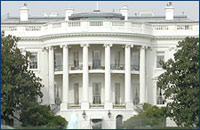From “Me, My, Mine” to “We, Our, Mine”
 Although Peru’s Yanachocha gold mine is one of the largest and most profitable gold mines in the world, the mine owners have been repeatedly stymied by local residents in their efforts to expand production. In response to environmental problems associated with the mine, protesters (pictured above) have blockaded mine facilities and clashed with security forces on several occasions, costing the mine owners millions of dollars along the way. So, how can mine owners elsewhere in the developing world avoid such costly conflicts with the communities that host their operations? This is the question addressed by my colleague Lisa Laplante in a fascinating new article just posted on SSRN, “Out of the Conflict Zone: The Case for Community Consent Processes in the Extractive Sector.” (The article can also be found at 11 Yale Human Rights & Development L.J. 69 (2008).)
Although Peru’s Yanachocha gold mine is one of the largest and most profitable gold mines in the world, the mine owners have been repeatedly stymied by local residents in their efforts to expand production. In response to environmental problems associated with the mine, protesters (pictured above) have blockaded mine facilities and clashed with security forces on several occasions, costing the mine owners millions of dollars along the way. So, how can mine owners elsewhere in the developing world avoid such costly conflicts with the communities that host their operations? This is the question addressed by my colleague Lisa Laplante in a fascinating new article just posted on SSRN, “Out of the Conflict Zone: The Case for Community Consent Processes in the Extractive Sector.” (The article can also be found at 11 Yale Human Rights & Development L.J. 69 (2008).)
In essence, Lisa and her co-author Suzanne Spears argue that the “extractive industries” should embrace the principle of free prior and informed consent (FPIC): before initiating new projects (and on an on-going basis thereafter) companies should obtain consent for their activities from the communities that will be most affected by them.

